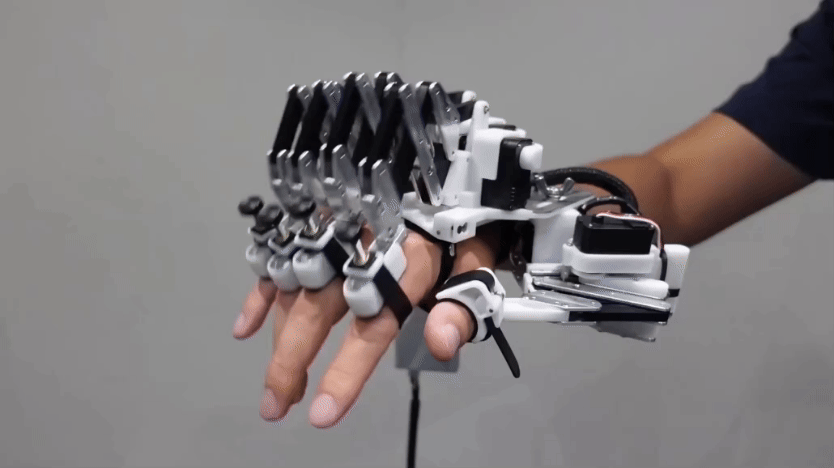The pandemic prematurely aged teens’ brains
A small study showed certain structural changes that appeared three to four years early

Changes wrought by the pandemic during the last few years may have affected the development of adolescents' brains.
Justin Paget/Digital Vision/Getty
By Freda Kreier
The COVID-19 pandemic may have aged teens’ brains beyond their years.
The past few years have been rough on students. They’ve endured online schooling, social isolation, family hardships and news of a mounting global death toll. For teens, the virus and its many social side effects arrived during a crucial window in their brain’s maturation.
Now, a small study finds that the brains of teens who have been living through all this look about three years older than expected. This research is the first to look for impacts of the pandemic on brain aging. The new findings emerged by comparing brain scans taken from kids before the pandemic to those taken from different teens after 2020.
The new data show that for teens, “the pandemic hasn’t been bad just in terms of mental health,” says Ian Gotlib. “It seems to have altered their brains as well.” Gotlib is a neuroscientist who led the study. He works at Stanford University in California. His team shared its findings December 1 in Biological Psychiatry: Global Open Science.
Beatriz Luna did not take part in the new study. But as a developmental neuroscientist, she’s familiar with this period of brain changes. Luna works at the University of Pittsburgh in Pennsylvania. She says the new study did not link the brain changes it found to poor mental health during the pandemic. (In fact, it didn’t explore those questions.) But, she adds, “we know there is a relationship between adversity and the brain.” Our mind will try “to adapt to what it’s been given,” she notes. To her, the new work “is a very important study that sets the ball rolling for us to look at this.”
Ongoing study was poised to see ‘striking’ changes
The roots of this study date back nearly a decade. Back then, Gotlib helped launch a project in California’s Bay Area. Its focus was depression in adolescents. As part of that study, the researchers did MRI scans of kids’ brains.
Lockdown orders in the spring of 2020 forced the researchers to halt this work. When they restarted a year later, Gotlib worried that stress from the pandemic threatened to alter his group’s results.
Kids making their way back to the study were now reporting higher rates of anxiety and depression than their peers had before 2020. So, the team decided to compare brain scans captured before the start of the pandemic to scans taken between October 2020 and March 2022.
The researchers looked at differences in 64 scans from each group. Those groups had about the same mix of boys and girls. The average age was around 16.
And the results were “striking,” Gotlib now reports.
Adolescent brains undergo a remodeling process as kids mature into adults. Part of this remodeling thickens two brain regions. One is the hippocampus. It’s involved in memory and concentration. The other, the amygdala (Uh-MIG-duh-luh), regulates how we process emotions. At the same time, the outer layer of the brain gets thinner. Known as the cortex, it’s involved in many cognitive functions. Those include attention, memory, problem solving and emotional regulation.
The brain scans revealed that during the pandemic, this structural maturation had sped up in the brains of teens. Their brains appeared three to four years older than did same-age teens scanned before the start of the pandemic.
Exactly what about the pandemic caused this is not clear. But “this study shows that the pandemic has had a material impact” on how the brains of teens mature, says Joan Luby in St. Louis, Mo. A child psychiatrist, she wasn’t involved in the research. She works at the Washington University School of Medicine.
A response to stress?
Gotlib suspects stress is to blame. Mental health plummeted among teens during the pandemic. Previous studies have shown that violence or negligence can speed up a child’s brain maturation. So, Gotlib thinks, “it’s not a big leap” to think that stress during the pandemic could also have shaped brain development in the kids studied here.
But what caused the brain changes and what those changes mean are still not known.
Rudolf Uher is a neuroscientist at Dalhousie University. It’s in Halifax, Canada. More screen time due to online schooling could be at play here, he says. And, he cautions, future research may not confirm this study’s findings.
For now, it’s unclear whether faster brain aging affects teen health now — or perhaps even later in life. While no one can know the impacts for sure, Luby notes that “if your brain is prematurely aging, that’s generally not a good thing.”
What is clear, Gotlib says, is that access to mental health services will be crucial to helping children who have lived through the pandemic. “These kids are hurting,” he says. “We need to take that seriously and make sure we’re offering them treatment.”







